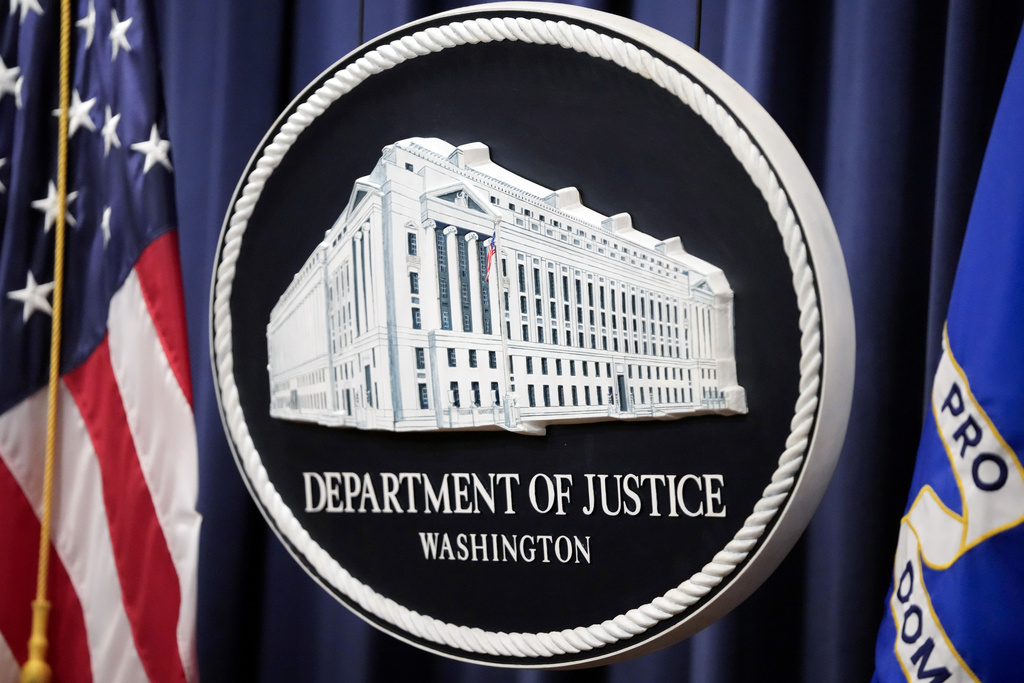Federal prosecutors sidestepped some Justice Department rules when they seized the phone records of reporters as part of media leak investigations during the Trump administration, according to a new watchdog report being released as the aggressive practice of hunting for journalists’ sources could again be resurrected.
The report Tuesday from the Justice Department inspector general’s office also found that some congressional staffers had their records obtained by prosecutors by sheer virtue of the fact that they had accessed classified information despite that being part of their job responsibilities.
Though the report chronicles Justice Department actions from several years ago, the issue has new resonance as President-elect Donald Trump’s pick for FBI director, Kash Patel, has spoken of his desire to “come after” members of the media “who lied about American citizens” and his belief that the federal government should be rid of “conspirators” against Trump.
Those comments raise the possibility that the Justice Department under new leadership — Trump has picked former Florida attorney general Pam Bondi to serve as his attorney general — could undo a three-year-old policy that, with limited exceptions prohibits, prosecutors from secretly seizing reporters’ phone records during investigations into leaks of sensitive information.
The action from Attorney General Merrick Garland in 2021 followed an uproar over revelations that the Justice Department during the Trump administration had obtained records belonging to journalists at The Washington Post, CNN and The New York Times as part of investigations into who had disclosed government secrets related to the investigation into Russian election interference and other national security matters.
The inspector general found that the Justice Department didn’t follow certain department rules that had been implemented years earlier when seeking reporters’ records in 2020, including having a News Media Review Committee review the request, according to the report. The committee is meant to ensure that officials other than prosecutors, including the head of the department’s office of public affairs, are able to weigh in on such efforts.
Then-Attorney General William Barr, who authorized obtaining the records from CNN, The New York Times and the Washington Post, did not expressly sign off on the use of non-disclosure agreements that were sought — as was required under department policy, according to the report.
The Justice Department also seized data from the accounts of some Democratic members of Congress over leaks related to the Russia investigation, and sought records through Apple from then-White House counsel Don McGahn.
The department went after records of two members of Congress and 43 congressional staffers, according to the report. The inspector general found no evidence of “retaliatory or political motivation by the career prosecutors” who initiated the requests. The staffers were considered suspects in most cases merely because of the close proximity between the time they accessed classified material as part of their job responsibilities and the publication of news articles containing secret information, according to the report.
Garland’s new policy laid out several scenarios under which the Justice Department still could obtain reporters’ records, including if the reporters are suspected of working for agents of a foreign power or terrorist organizations, if they are under investigation for unrelated activities or if they obtained their information through criminal methods like breaking and entering.
The Justice Department during both Democratic and Republican leadership has struggled with how to balance its determination to protect press freedom and its determination to safeguard national security secrets.
President Barack Obama’s first attorney general, Eric Holder, announced revised guidelines for leak investigations after an outcry over actions seen as aggressively intrusive into press freedom, including the secret seizure of phone records of Associated Press reporters and editors.
And Jeff Sessions, Trump’s first attorney general, announced in 2017 a leak crackdown following a series of disclosures during the investigation into Russian election interference.
(AP)











